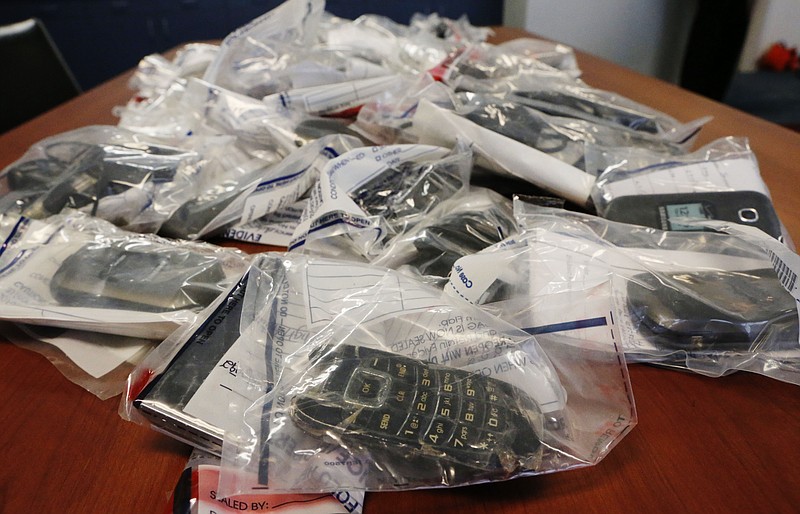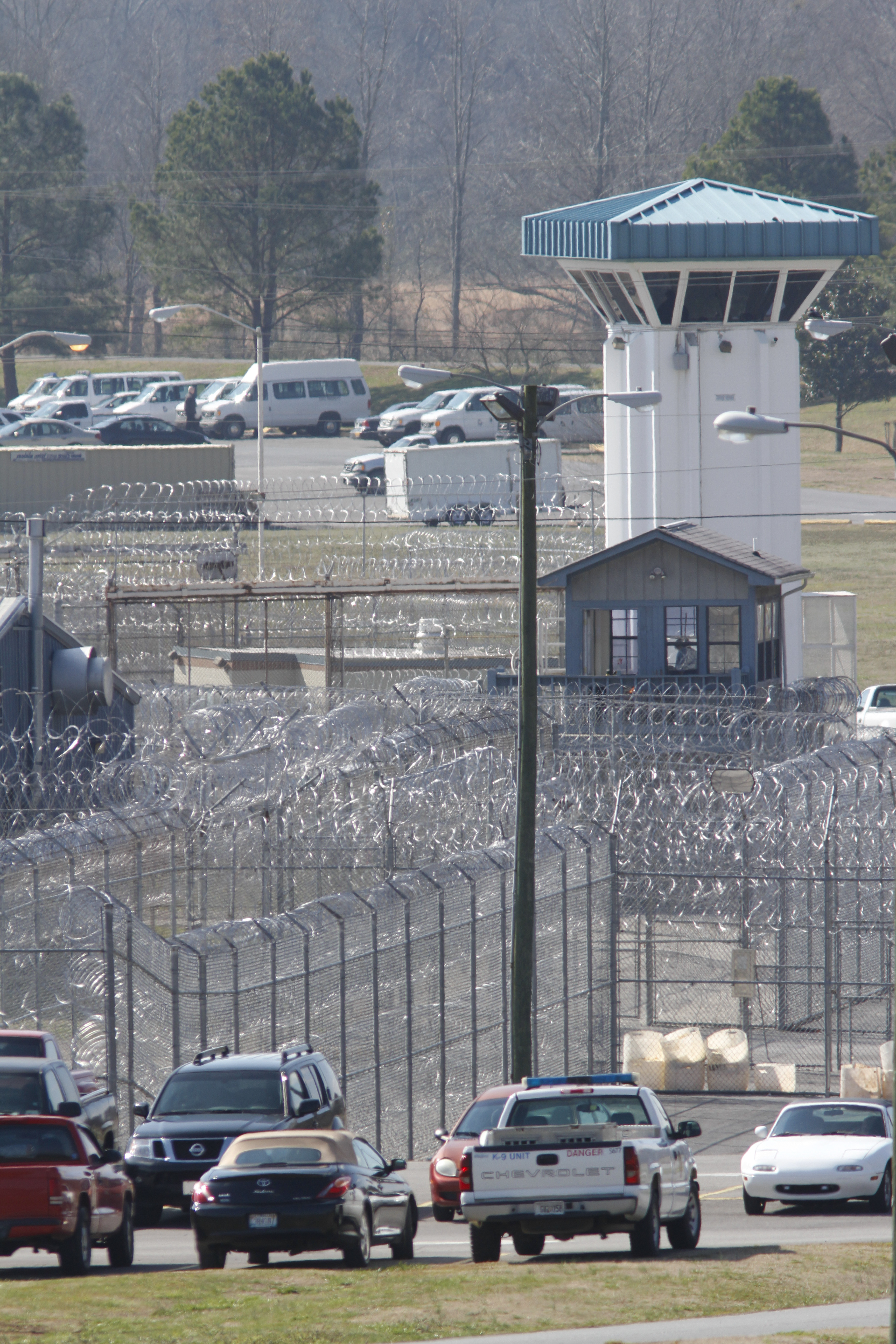After speaking with corrections officials in Georgia on Thursday, a member of the Federal Communications Commission said he'd like to have a national conversation about the problem of contraband cellphones in prisons.
Commissioner Ajit Pai visited the state prison in Jackson and met with Georgia Department of Corrections Commissioner Homer Bryson and other agency officials. The visit came on the heels of the indictment last month of a dozen people federal prosecutors say were involved in crime rings run by inmates using contraband cellphones in Georgia prisons.
Pai said news reports about the staggering numbers of contraband cellphones found in prisons sparked his interest in the issue. The five FCC commissioners voted in 2013 on a proposal to kick-start a conversation about what the agency could and should do to combat the problem, but it never really got off the ground, Pai said.
"This is an issue that it seems to me squarely implicates the safety of the general public in the United States," Pai said, adding that he hopes his fellow commissioners and the public share his enthusiasm to tackle the issue.
The problem is a national one, but in Georgia prisons alone, 8,305 contraband cellphones have been seized in 2015, either from inmates or from people trying to smuggle them in. The phones can then be used to coordinate criminal activity, harass or threaten people on the outside and even to order abductions or killings.
Some are brought in by prison staff, visitors and inmates returning from off-site work detail, while others are tossed or flown by drone over a prison fence.
A frequently mentioned potential solution to the problem is cellphone jammers, which are radio frequency transmitters intended to interfere with radio communications and which are prohibited by the federal government. In addition to blocking the intended communications, they can also prevent emergency phone calls from getting through and can interfere with law enforcement communications, according to the FCC.
"Jammers are indiscriminate," said Chuck Bokath, a research engineer at Georgia Tech Research Institute, which was contacted by the Georgia governor's office in 2012 to look into solutions for the problem of cellphones in prisons. "They will block everyone and anyone from communication, which is not a good thing because then if there's an incident inside the facility, you're getting jammed and you can't communicate out."
A better system, he said, is managed access, "where the good guys can communicate and the bad guys can't."
Managed access essentially provides a micro-network within a facility that can emulate any cellphone carrier and will be the strongest, clearest signal there. Phones are constantly seeking the strongest signal and will latch onto that network, Bokath said.
But that micro-network would be controlled by prison officials, who could choose which phones can access the network. They could, for example, create a list of phones that belong to corrections officers and others who need to be able to communicate within the prison and grant them access while blocking any other phones from connecting to that micro-network, he said.
Such systems are being explored in several state prison systems around the country, including in Georgia, where Bryson said the department has pilot programs in place at two prisons and a contract for a third. But Bryson said managed access hasn't been as reliable as he hoped, estimating that it's probably stopping about 70 percent or 80 percent of calls at a cost of between $1 million and $1.5 million per prison.
"As a taxpayer, one of my greatest fears is spending that kind of money on something that isn't that reliable," he said.
Bryson said he'd like to work with the FCC on making it possible for his agency to work directly with cellphone providers so they could allow calls to and from certain phones to go through while blocking all others inside a tightly drawn perimeter, which would be similar to managed access but without a third party vendor providing the technology.
Bryson said he's also looking into lower-tech solutions, including putting up netting to stop throw-overs, increasing staffing to ramp up inspections at prison gates and using better scanning technology.
Pai said he's interested in learning more about possible solutions and to going back to Washington armed with information and specific examples of the problem from Georgia.
"I'm open to virtually any technological or policy solution that would be consistent with the law," he said.

